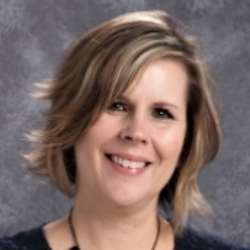About Reading Language Arts
The ability to communicate-to read, write, listen, and speak well-is the key to success in school and in life. To ensure that all students read with meaning, write clearly, and speak and listen effectively, the Lincoln Public Schools provide a comprehensive language arts program.
In kindergarten, first and second grades the Language Arts course has two strands of instruction, Skills and Knowledge. The Skills Strand provides explicit and systematic instruction in the foundational skills of reading. Code-based instruction includes print awareness, phonological awareness, direct and explicit instruction in sound-spelling correspondences with ample practice decoding and encoding individual words and longer pieces of text including readers that have been written to match the scope and sequence of sound-spelling correspondences in the core program. Discussions about the simple yet compelling stories in the readers help students develop oral language, speaking, listening, and comprehension skills. The foundational skills of handwriting, grammar, spelling, writing structure and process are also included in the Skills Strand.
In the K-2 Knowledge Strand students enjoy texts read aloud by their teacher from a variety of genres. These texts expose students to the complex language structures of written language. The texts are carefully sequenced to build vocabulary and content knowledge in a variety of topics and domains including literature, social studies, history, science, and the arts. The vocabulary and knowledge students build will support their comprehension of texts now and in the future. Students further develop their oral and written expression skills and comprehension skills through daily discussions of the text; opportunities to recount what was read and make connections to what they already know; and answer literal, inferential, and evaluative text-dependent questions about the text orally, through drawing, and/or in writing.
In third, fourth, and fifth grades the Language Arts course only has one integrated Knowledge Strand where students build a wide breadth of knowledge and related vocabulary in the domains of literature, social studies, history, and the arts as they read, discuss, analyze, cite evidence from, and write about grade level complex texts from a variety of genres. The texts are carefully sequenced to support students in their building of content knowledge, vocabulary, and analysis skills and include some classic stories, poems and personal narratives written by a variety of people, and some commissioned texts written specifically for the program. Students develop their speaking and listening skills through structured and informal discussions of texts, opportunities to present information learned, ideas gained, and opinions formed. Students grow their comprehension and analysis skills through opportunities to closely read and reread portions of texts in order to cite evidence and answer literal, inferential, and evaluative text-dependent questions orally and/or through both short and longer written responses.
Students continue to learn the conventions of English grammar and spelling and apply those skills in writing. Writing instruction is integrated with reading instruction and includes both short, single-sitting writing activities such as journaling or writing to a prompt and longer projects that take several days to complete and go through the writing process of draft, edit, revise, and publish.
The 6th grade Humanities course is a comprehensive and inclusive program that addresses Nebraska State English Language Arts and Social Studies Standards. The course is intended to develop students’ 21st Century skills, including:
- The ability to read for meaning and think critically,
- Communicate effectively through writing, speaking, and listening,
- Successfully collaborate with others, and
- Think creatively to engage in problem-solving and inquiry.
The ELA content of the course places text at the center of every lesson. The lessons follow a flexible structure that includes building vocabulary, learning skills to navigate complex text, make observations, grapple with interesting ideas, make and support claims with evidence, and build confidence and skills as a writer. The Social Studies content focuses on using skills of a historian to develop an understanding of the narrative of world history from 8,000 BCE to 300 CE.
At all grade levels students are supported in the classroom through needs-based flexible groups. These groups include special education students, high ability learners, English language learners and students who profit from interventions. The 2021 Nebraska English-Language Arts Standards guide instruction at each grade level.
Parents can access more detailed information about the Language Arts course their student is in through ParentVue on the Class Information Page.


